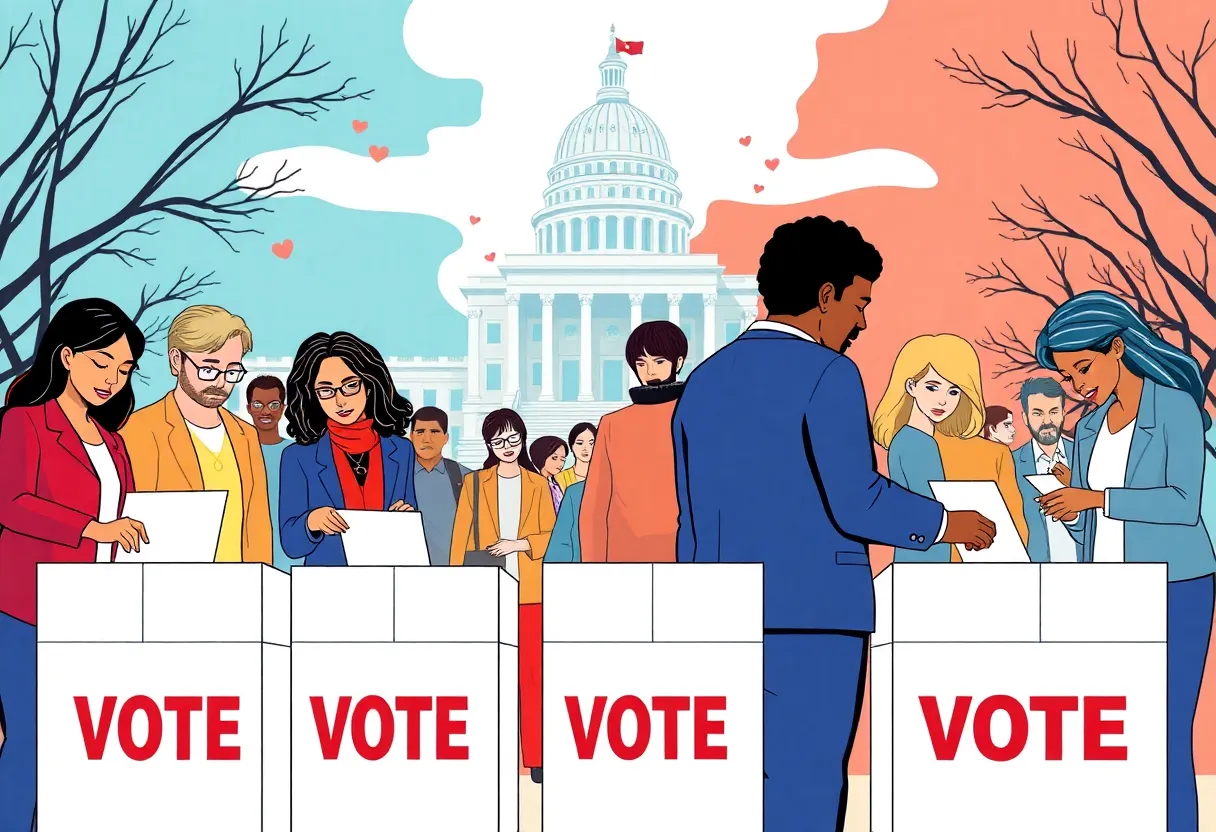

Voters participate in elections, emphasizing the importance of every citizen's voice in the electoral process.
Want to target the right audience? Sponsor our site and choose your specific industry to connect with a relevant audience.
Prominent brand mentions across targeted, industry-focused articles
High-visibility placements that speak directly to an engaged local audience
Guaranteed coverage that maximizes exposure and reinforces your brand presence
Interested in seeing what sponsored content looks like on our platform?
May’s Roofing & Contracting
Forwal Construction
NSC Clips
Real Internet Sales
Suited
Florida4Golf
Click the button below to sponsor our articles:
Sponsor Our ArticlesThe U.S. Supreme Court has declined to hear a lawsuit by 11 Republican lawmakers from Michigan aimed at overturning voting rights measures approved by voters. This decision upholds citizen-led initiatives from 2018 and 2022 that introduced significant reforms, such as same-day voter registration and expanded early voting options. The ruling reinforces the principle that voters can shape electoral laws, following previous rejections of similar claims regarding election authority.
Washington, D.C. — The U.S. Supreme Court has officially refused to entertain a lawsuit from 11 Republican lawmakers from Michigan that sought to overturn voting rights measures enacted by voters through specific ballot proposals in recent years. This decision effectively upholds the voting reforms that were approved by citizen-led initiatives in 2018 and 2022.
The lawsuit was initially filed in 2023 and argued that these citizen-led initiatives violated the Elections Clause of the U.S. Constitution. The lawmakers contended that the clause grants state legislatures the exclusive authority to regulate federal elections. Specifically, the lawsuit targeted two voter-approved measures: Proposal 3 from 2018 and Proposal 2 from 2022.
Proposal 3, passed with over 60% approval, brought several significant voting rights reforms, including same-day voter registration, automatic voter registration, and no-reason absentee voting. Proposal 2, also receiving more than 60% support, guaranteed additional rights pertaining to early voting, ballot drop boxes, and provisions to assist overseas voters.
The U.S. District Court in Michigan dismissed the case in April 2024 on the grounds of lack of standing, a decision that was subsequently affirmed by the 6th U.S. Circuit Court of Appeals in December 2024. By declining to entertain the case, the Supreme Court has marked the final rejection of this lawsuit after it faced dismissal at multiple judicial levels.
The legal basis for the lawsuit derives from the contentious independent state legislature theory. This theory posits that only state legislatures have the authority to create and change election laws. However, the Supreme Court previously rejected this theory in the June 2023 case Moore v. Harper, establishing limitations on state legislative authority regarding electoral processes.
In this lawsuit, the plaintiffs were individual lawmakers instead of the state legislature as a complete body. This distinction has raised questions about their legal capacity to challenge the voter-approved laws, contributing to the dismissal by the higher courts.
Following the Supreme Court’s decision, Michigan Secretary of State Jocelyn Benson characterized the ruling as a significant victory for voters in Michigan, endorsing their rights to amend the state constitution as they see fit.
The Republican lawmakers, led by attorney Erick Kaardal, indicated that they might consider pursuing further legal challenges within state courts, where it is possible that individual legislators may have standing to argue their case.
Democrats, including Secretary of State Benson, have expressed confidence that this ruling will act as a barrier against any further partisan efforts to undermine the will of Michigan voters. The plaintiffs had argued that established procedures for amending voting regulations were bypassed by the citizen-led initiatives of 2018 and 2022, leading some observers to label the lawsuit as politically charged.
This legal battle has unfolded against a backdrop of heightened political scrutiny regarding election integrity and the trustworthiness of voting systems. Some lawmakers involved in the lawsuit have promoted claims regarding election fraud related to voting changes, further fueling the contentious environment surrounding election laws in the state.
The Supreme Court’s decision is significant not only for Michigan but also sets a precedent regarding the role of citizen-led initiatives in shaping electoral laws, reinforcing the principle that voters have a voice in determining how elections are conducted in their state.
News Summary Brenda Schroeder, RN, BSN, ACM, has received the DAISY Lifetime Achievement Award for…
News Summary On June 14, a nationwide movement named 'No Kings' is organizing protests against…
News Summary The Novi Fine Art Fair will take place at Twelve Mile Crossing At…
News Summary The Michigan Board of Canvassers has approved a referendum to potentially overturn laws…
News Summary The Michigan athletic department is preparing for significant budgetary challenges with a projected…
News Summary The Michigan House has passed a $2.3 billion higher education budget, implementing significant…